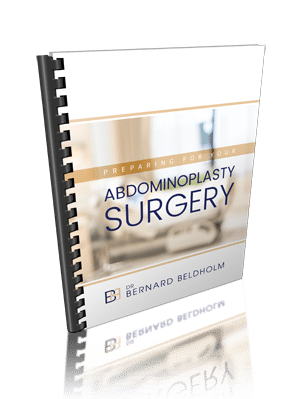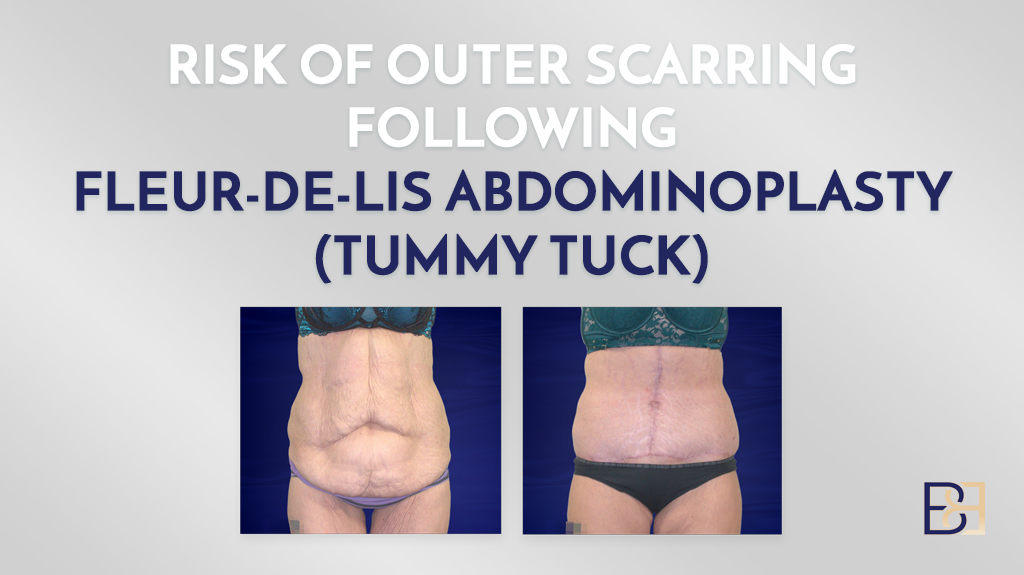If you’re wondering how long you’ll have to stay in the hospital after abdominoplasty surgery, you’ve come to the right place.
When it comes to hospital stays after abdominoplasty, the typical duration is usually 1 to 3 days, depending on individual recovery specifics and the complexity of the procedure.
In this article, we’ll cover the factors influencing your hospital stay, what to expect immediately post-surgery, and tips for a smooth recovery.
Key Takeaways
- Before surgery, prepare by consulting with a qualified surgeon and adopting lifestyle changes, like quitting smoking and eating well, which are condusive to a succesful surgical outcome.
- Hospital stays after abdominoplasty typically last 1 to 3 days, depending on the complexity of the surgery and individual factors.
- Staying in the hospital aids recovery through professional monitoring, effective pain management, and immediate emergency response if complications arise.
Typical Duration of Hospital Stay After Abdominoplasty
Book your appointment online now
One of the most common questions from abdominoplasty patients is about the duration of their hospital stay. Typically, the hospital stay after abdominoplasty surgery ranges from 1 to 3 days, depending on individual recovery specifics. While some patients might be ready to go home after a single night, others may need to stay longer, especially if they’ve undergone more extensive procedures.
In-Hospital Stay for Mini Abdominoplasty Patients
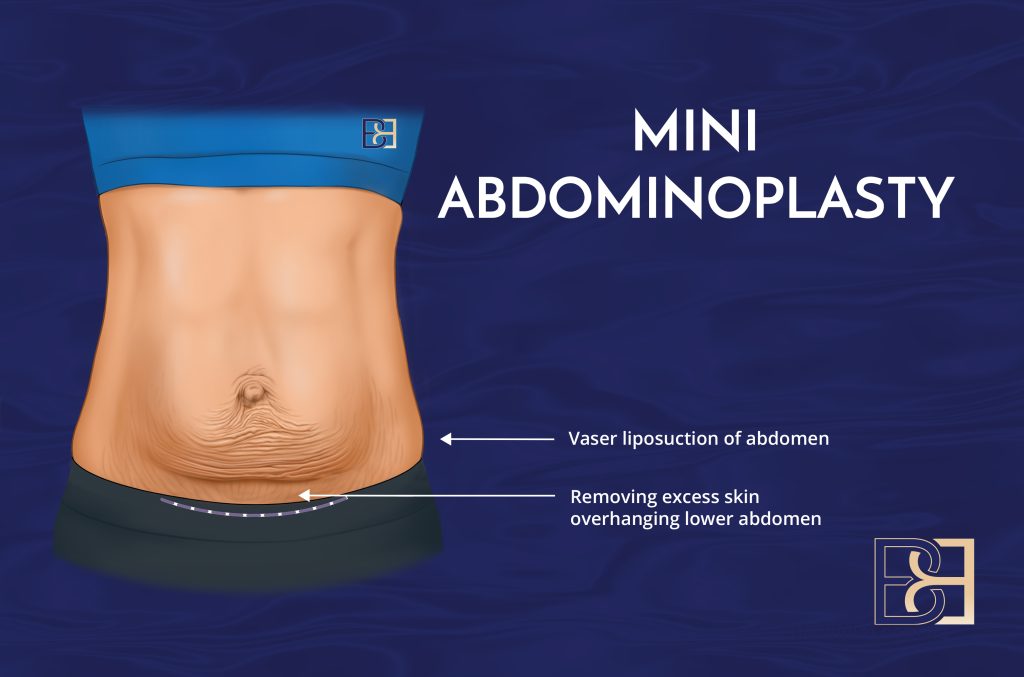
For patients undergoing a mini abdominoplasty, the hospital stay is generally shorter compared to more extensive abdominoplasty procedures. Most mini abdominoplasty patients can be done as a day procedure or at the most, an overnight stay. This shorter duration is due to the less invasive nature of the procedure, which involves minimal tissue removal.
In-Hospital Stay for Full Abdominoplasty Patients
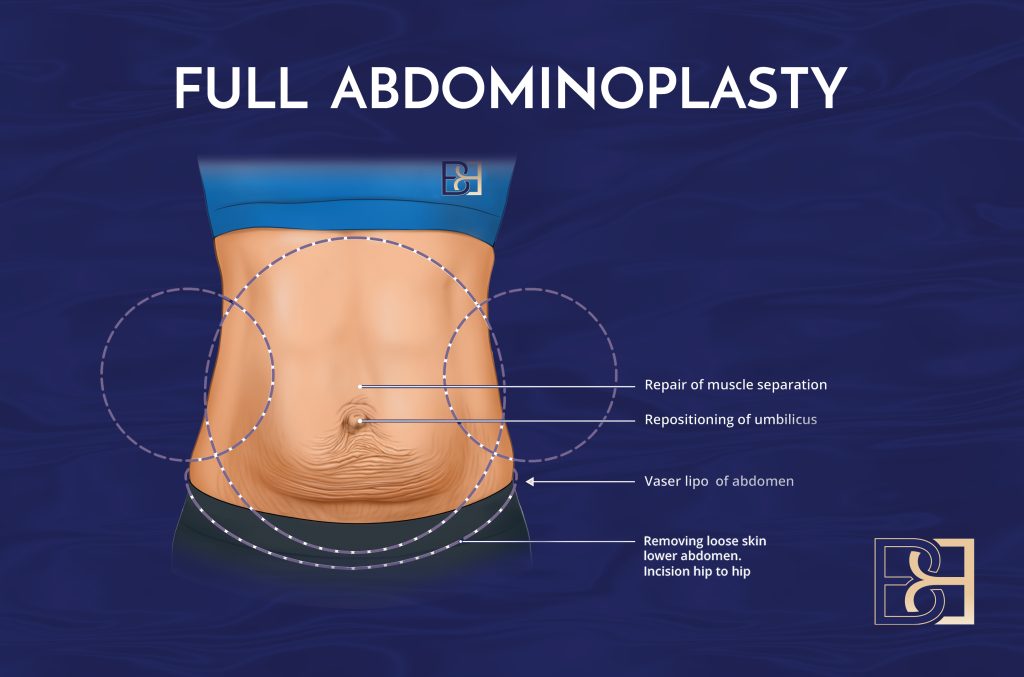
Patients undergoing a full abdominoplasty typically have a longer hospital stay compared to those having a mini abdominoplasty. Most full abdominoplasty patients can expect to stay in the hospital overnight or up to 2 nights. This extended duration allows for thorough monitoring of the initial recovery process and effective pain management. Patients who have had diastasis recti repair can expect more discomfort and a longer hospital stay.
In-Hospital Stay for Extended Abdominoplasty Patients
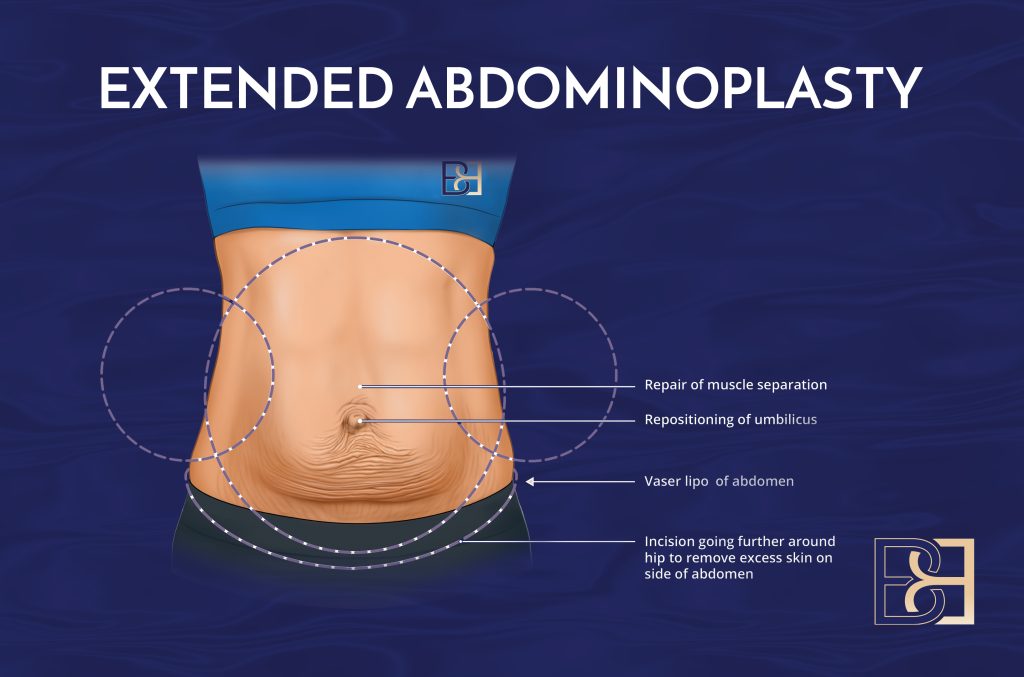
Patients undergoing extended abdominoplasty, which involves more extensive tissue removal and contouring, typically require a longer hospital stay compared to mini or full abdominoplasty patients. Most extended abdominoplasty patients can expect to stay in the hospital for about 2 to 3 nights. This extended duration is necessary to ensure thorough monitoring of the initial recovery process and effective pain management.
In-Hospital Stay for Fleur de Lis Abdominoplasty Patients

Patients undergoing a fleur de lis abdominoplasty typically require a more extended hospital stay compared to other types of abdominoplasty due to the extensive nature of the procedure. This surgery involves both vertical and horizontal incisions to remove a significant amount of excess skin and fat, which can lead to a more complex recovery process.
Most patients undergoing fleur de lis abdominoplasty can expect to stay in the hospital for approximately 3 to 4 nights. This extended duration is necessary to ensure thorough monitoring of the initial recovery process, effective pain management, and immediate response to any complications that may arise. The comprehensive care provided during this period is crucial for a successful recovery and optimal surgical outcomes.
Factors Affecting Length of Hospital Stay
Several factors can influence how long you need to stay in the hospital after your abdominoplasty surgery. The complexity of the surgery is a major determinant. More extensive procedures often necessitate longer hospital stays to ensure proper recovery. For instance, a mini abdominoplasty might require a shorter stay compared to a full abdominoplasty or a fleur de lis abdominoplasty.
On average, patients stay in the hospital for about two days after abdominoplasty. However, this can vary widely based on individual circumstances. Some patients might stay as little as one night, while others could need up to a week. Understanding these factors helps in setting realistic expectations and planning accordingly.
Patient’s Medical History
Your medical history are another crucial factor in determining the length of your hospital stay. Patients with pre-existing medical conditions or those who have had previous surgeries may need a longer hospital stay to ensure they recover properly. Conditions that affect blood flow or circulation can complicate recovery, necessitating extended medical supervision.
Most patients with a clear medical history can expect a shorter hospital stay. However, it’s essential to discuss your medical history thoroughly with your surgeon during the consultation phase to plan appropriately for your recovery needs.
Postoperative Complications

While abdominoplasty patients are generally considered a low-risk procedure, postoperative complications can occur and may extend your hospital stay. Complications such as infections, blood clots, and fluid accumulations (seromas or haematomas) can disrupt the healing process and require additional medical attention, especially after abdominal surgery.
Monitoring any changes around the incision site and promptly reporting them to your medical team is critical. Timely intervention can prevent further complications and facilitate a smoother recovery. For instance, larger haematomas may need to be drained by a medical professional to mitigate risks.
Benefits of Staying in the Hospital After Abdominoplasty
Staying in the hospital post-surgery offers several benefits that can significantly aid in the recovery process. Access to a team of professionals dedicated to patient comfort and recovery ensures that you receive the best care possible. This support is crucial in the immediate aftermath of surgery when your body is most vulnerable.
Hospital-based care provides professional assistance, medication, and reduces the stress of daily responsibilities, allowing you to focus solely on healing. Compromising on hospital stay can risk your health and affect the aesthetic results of the surgery.
Professional Monitoring
One of the most significant benefits of staying in the hospital after abdominoplasty surgery is professional monitoring. Medical staff play a crucial role in overseeing your recovery and detecting any complications immediately. With 24/7 support from trained professionals, you can rest assured that your health is being closely watched.
Continuous monitoring ensures that any signs of excessive swelling, pain, or unusual discharge from the surgical site are promptly dealt with. This ongoing observation is vital for early detection of any health issues, contributing to a smoother recovery process.
Pain Management

Effective pain management is a cornerstone of recovery after major surgery like abdominoplasty. Hospitals are equipped with superior pain relief tools and medications that focus on patient comfort. Managing pain effectively not only affects one’s comfort but also supports the overall healing process.
Patients are typically prescribed medications to manage pain and reduce the risk of infection post-surgery. The combination of hospital resources and prescribed medications significantly support recovery.
Immediate Response to Emergencies
Another critical benefit of staying in the hospital post-abdominoplasty is the immediate response to emergencies. Timely management of emergent complications like blood clots, which can lead to deep vein thrombosis if unnoticed, is crucial during early recovery.
Having guaranteed medical assistance available when needed ensures that any complications are promptly and effectively managed, which is essential for a successful recovery.
Download our infographic: “15 Exercises to Try After Abdominoplasty”
Transitioning from Hospital to Home

Transitioning from the hospital to home marks a significant step in your recovery journey. Preparing your home for recovery involves setting up a comfortable space with essential items like pillows, medications, and a compression garment to reducing swelling. Having someone assist you for the first couple of days post-surgery is crucial due to your limited mobility.
Following the personalised advice from your specialist surgeon is essential to ensure a smooth transition and reducing complications.
Preparing for Your Abdominoplasty Surgery
Before you even step into the operating room, preparation is key to a successful abdominoplasty surgery. The journey begins with an initial consultation with a qualified specialist surgeon, such as Dr. Beldholm, who focuses on abdominoplasty surgery. During this consultation, your surgeon will assess your medical and family history, discuss your personal goals, and determine whether you’re a good candidate for the procedure. This step is crucial as it sets the foundation for your surgery and recovery.
In the months leading up to your surgery, lifestyle changes play a significant role. Most abdominoplasty patients are encouraged to quit smoking and maintain a balanced diet at least three months before the surgery. These modifications not only promote healing but also help ensure positive outcomes, free of complications. Additionally, closely following pre-operative instructions, including any fasting requirements, is essential to avoid complications on the day of surgery.
Mental preparation is equally important. Techniques such as yoga, meditation, or listening to calming music can help reduce pre-surgery anxiety. Choosing an experienced surgeon whose expertise you trust is critical. Their skill and knowledge significantly influence the outcomes of your abdominoplasty.
With these preparations in place, you’ll be well on your way to a successful procedure.
What to Expect Immediately After Abdominoplasty Surgery
So you’ve made it through your abdominoplasty surgery – congratulations! But what happens next? Immediately after the procedure, you’ll be closely monitored in the recovery room to ensure there are no immediate complications. This phase is crucial as it allows medical staff to keep an eye on your vitals and overall condition, ensuring your initial recovery is on track.
Discomfort is a typical part of the immediate post-surgery experience. You’ll likely feel tightness and reduced sensation in your abdominal muscle area, which is completely expected. Managing this discomfort involves following your surgeon’s instructions on medication and care. The first day post-surgery is often the most uncomfortable, so having professional help available can make a significant difference.
Another aspect to be aware of is the potential need for temporary drainage tubes to collect excess fluid from the surgical site. These tubes are usually removed before you’re discharged but are critical in preventing fluid accumulation and aiding in your recovery. Understanding these immediate post-surgery elements helps in setting realistic expectations and reduces anxiety about the recovery process.
Preparing Your Home for Recovery
Wearing a compression garment is crucial as it helps to minimise swelling and aids in the healing process. Incisions are usually covered with surgical dressings to protect them during the initial healing phase. Ensuring your sleeping area is arranged to keep your knees bent will provide optimal comfort during recovery.
Arranging for help around the house is essential. You’ll have limited mobility in the days following surgery. Make arrangements for someone to assist with child and pet care, chores, and transportation.
Monitoring your wound site for any signs of infection and maintaining a fibre-rich diet to prevent constipation are also crucial steps.
Follow-Up Care
Scheduled follow-ups with your surgeon, such as Dr. Beldholm, are crucial for effective post-operative care, especially after reconstructive surgery. These follow-up appointments are crucial for your surgeon to track your healing progress, answer any questions, and ensure that no complications have developed. Consistent follow-up visits help in identifying and managing any issues early on, which is essential for a smooth recovery.
During follow-up appointments, don’t hesitate to discuss any concerns or complications you may encounter during your recovery. Open communication with your surgeon ensures that any potential issues are dealt with promptly, contributing to better clinical outcomes.
Resuming Normal Activities
Resuming normal activities after abdominoplasty surgery should be done gradually and with caution. In the first two weeks post-surgery, it’s important to avoid standing for long durations, lifting heavy objects, and excessive movement. Strenuous exercise should also be avoided until you are stable and have consulted with your surgeon. Most patients can start returning to work about a month after surgery, depending on the physical demands of their job.
Light walking is encouraged as soon as two weeks after surgery to promote healing and increase blood flow. However, activities like baths and swimming should be avoided for eight weeks post-surgery to prevent infection. Always consult with your surgeon before resuming any physical activity to ensure you are ready and to avoid setbacks in your recovery.
Easing back into your routine slowly and without pressure is crucial. If your job is physically demanding, it’s important to get clearance from your surgeon before returning to work. Following these guidelines will help ensure positive outcomes.
Dr. Beldholm’s Final Conclusion

As a specialist surgeon who focuses on abdominoplasty surgery, I cannot emphasise enough the importance of understanding the hospital stay and recovery process to ensure a smooth journey to a better you. From the initial preparations, including consultations and lifestyle changes, to the immediate post-surgery phase with proper monitoring and pain management, each step is vital for a successful outcome. While the typical hospital stay varies, staying in the hospital provides essential professional monitoring, effective pain management, and immediate emergency response, all of which significantly impact recovery.
As you transition from the hospital to home, it’s crucial to prepare your space and follow your surgeon’s advice diligently. Gradually resuming normal activities and adhering to follow-up care will help ensure a smooth recovery. By taking these steps, you can achieve the best possible results from your tummy tuck surgery. Remember, patience and thorough preparation are your best allies on this journey to a new you.
Thank you for taking the time to read this comprehensive guide. If you have any questions or need further clarification, please do not hesitate to reach out. Your health and successful recovery are my top priorities.
Frequently Asked Questions
How long do I need to stay in the hospital after abdominoplasty surgery?
You’ll usually be looking at staying in the hospital for about 1 to 3 days after an abdominoplasty, but it really depends on how your recovery goes and the details of your surgery. Just keep an eye on how you’re feeling!
What can I expect immediately after my abdominoplasty surgery?
After your abdominoplasty, you can expect to be monitored closely and may feel discomfort and tightness in your abdomen. Don’t be surprised if you have some temporary drainage tubes in place too!
What factors affect the length of my hospital stay after abdominoplasty?
The length of your hospital stay after an abdominoplasty mainly depends on the surgery’s complexity, your overall health, and any complications that might pop up. So, it’s crucial to stay on top of your health both before and after the procedure!
Why is it beneficial to stay in the hospital after abdominoplasty surgery?
Staying in the hospital after an abdominoplasty is super beneficial because you get expert monitoring and pain management, plus having help available immediately if any issues do arise.
How can I prepare my home for recovery after abdominoplasty surgery?
To prep your home for a smooth recovery after abdominoplasty, create a comfy recovery space, have someone ready to help you out, wear your compression garment, and keep an eye on your wound. Just remember to follow your surgeon’s specific tips too!

